4 women of Paradise
All praises be to Allah s.w.t.
Islam elevates the status of all men and women alike. Like men, women play a notable role in Islam. Allah s.w.t. praises many women across history for their undeterred faith, perseverance, strength and bravery in upholding the truth. Allah s.w.t. also made it clear that the success of a nation highly depends on women too.
I would like to share with you four exemplary women in Islam. In a hadith, Prophet Muhamamd s.a.w. once mentioned the four women of paradise:
خط رسول الله صلى الله عليه وسلم في الأرض أربعة أخطط، ثم قال: تدرون ما هذا؟ قالوا: الله ورسوله أعلم. قال: أفضل نساء أهل الجنة خديجة بنت خويلد، وفاطمة بنت محمد، ومريم ابنة عمران، وآسية بنت مزاحم امرأة فرعون
“The Messenger of Allah s.a.w. drew four lines on the ground, then he s.a.w. said, 'Do you know what this is?' The Companions r.a. replied, 'Allah and His Messenger know best.' He s.a.w. then said: 'The best of the women of Paradise are Khadijah bint Khuwaylid, Fatimah bint Muhammad, Maryam bint ‘Imran and Asiyah bint Muzahim, the wife of Pharaoh'”
(Musnad Ahmad)
1. Sayyidatina Khadijah Bint Khuwaylid r.a.
خَيْرُ نِسَائِهَا مَرْيَمُ ابْنَةُ عِمْرَانَ، وخَيْرُ نِسَائِهَا خَدِيجَةُ
“Mary, the daughter of Imran, was the best among the women (of the world of her time) and Khadijah is the best amongst the women (of this nation).”
(Sahih Al-Bukhari)
Sayyidatina Khadijah r.a.’s name is synonymous with the eventful appointment of the last messenger s.a.w. She was the first person to embrace Islam and had anticipated this religion’s arrival.
When Prophet Muhammad s.a.w. came to her in a state of shock from the presence of angel Jibril a.s, she convinced and comforted him. She reassured Prophet Muhammad s.a.w, as narrated by Imam Muslim in a hadith, saying, “By Allah, Allah will never disgrace you. By Allah, you enjoin ties together, you speak the truth, you bear the burden of others, you help the destitute, you welcome guests and you assist the deserving calamity-afflicted ones!”
Khadijah r.a. was elated when her cousin, Waraqah bin Naufal, a Christian monk, who, upon hearing the extraordinary encounter, told her the news that her husband, Prophet Muhammad s.a.w, would be the last messenger of Allah s.w.t.
Those early years of prophethood were the hardest as they received brutal backlash from even their own family. They were boycotted and physically and verbally abused. Yet, she remained strong both mentally and emotionally and was Prophet Muhammad s.a.w.’s pillar of strength.
Khadijah r.a. was also known to be financially and socially influential as she was Islam’s biggest philanthropist during those trying times. She represented excellent leadership qualities and great entrepreneurship. This could be seen in the accounts before the advent of the first revelation when she led her own trading company that travelled far from Arabia until the Roman lands in Syam (modern-day Levant).
She only chose trustworthy individuals to represent her business trips, one of which was the young Prophet Muhammad s.a.w. himself to ensure clean and honest transactions without any corruption or deceit.
Khadijah r.a. earned her place in the heart of Prophet Muhammad s.a.w. He would often mention Khadijah r.a. at every opportunity; sharing her virtues as a source of inspiration for others. She was also beloved to Allah s.w.t. and the angel Jibril a.s. Once, Jibril a.s. came to Prophet Muhammad s.a.w. and said:
يَا رَسُولَ اللَّهِ هَذِهِ خَدِيجَةُ قَدْ أَتَتْ مَعَهَا إِنَاءٌ فِيهِ إِدَامٌ أَوْ طَعَامٌ أَوْ شَرَابٌ فَإِذَا هِيَ أَتَتْكَ فَاقْرَأْ عَلَيْهَا السَّلَامَ مِنْ رَبِّهَا وَمِنِّي وَبَشِّرْهَا بِبَيْتٍ فِي الْجَنَّةِ مِنْ قَصَبٍ لَا صَخَبَ فِيهِ وَلَا نَصَبَ
“O Messenger of Allah, here is Khadijah coming to you with a dish of stew, food and drink. When she arrives before you, greet her with peace on behalf of her Lord and myself. Give her glad tidings of a palace in Paradise made of reeds, wherein there will be no turbulence, nor fatigue.”
(Sahih Al-Bukhari)
Prophet Muhammad s.a.w.’s immense love for Khadijah r.a. was apparent even after her passing; he never forgot those who were close to her. He would often slaughter a sheep and send portions of it to the friends of his beloved Khadijah r.a.
Once Sayyidatina A’ishah r.a. enquired from Prophet Muhammad s.a.w. about Khadijah r.a. to which he replied:
قد آمَنَتْ بي إذ كفَرَ بي الناسُ، وصدَّقَتْني إذ كذَّبَني الناسُ، وواسَتْني بمالِها إذ حرَمَني الناسُ
“She believed in me when no one else did, she accepted (my call to the truth) when people rejected me and she supported me financially when others denied me.”
(Musnad Ahmad)
Her passing was devastating to Prophet Muhammad s.a.w. and the believers. The year of her passing was the same year Abu Talib; the Prophet’s uncle, departed from this world. That year was named ‘The Year of Grief’.
Read more: Overcoming the feeling of loss and purposelesness in Life
Sayyidatina Khadijah r.a. had impacted Prophet Muhammad s.a.w.'s life positively and in many ways. She was his first love and his biggest supporter in calling others to Islam. Until today, there are volumes of books about Sayyidatina Khadjiah r.a. and her virtues. She was the walking epitome of sincerity, bravery, selflessness and love that would always be followed by many.
Will we be like Sayyidatina Khadijah r.a. whose presence brought blessings and goodness, whose death was a great loss felt by Prophet Muhammad s.a.w. himself?
Read more: Three things Prophet Muhammad s.a.w. taught us about love
2. Sayyidatina Maryam a.s.
Sayyidatina Maryam a.s — the mother of Prophet Isa a.s, came from a noble and righteous family of Imran. Her family was mentioned in the Quran and had a dedicated chapter named after them in Surah Al-Imran.
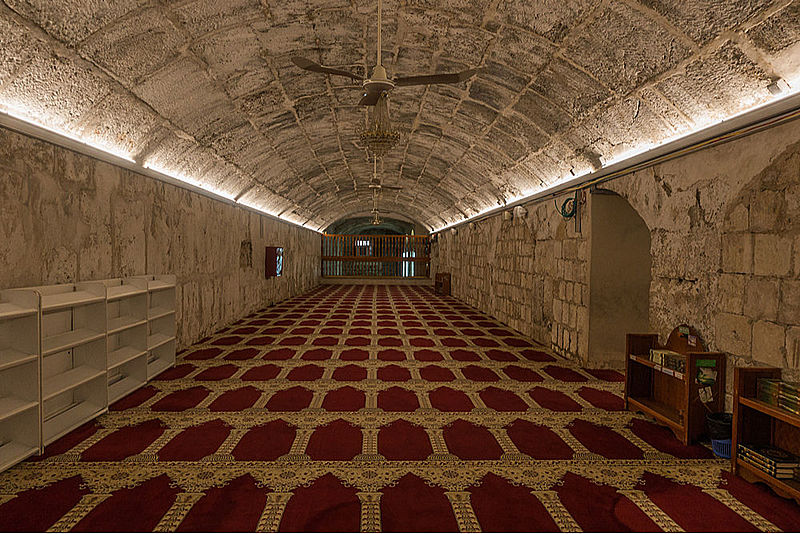
Sayyidatina Maryam a.s. too had a dedicated chapter named after her. This shows that she and her family were loved and honoured by Allah s.w.t, and one of the gifts to them to magnify this honour was the miraculous birth of Prophet Isa a.s. as a lineage to this honourable family.
Before her birth, Sayyidatina Maryam a.s’ mother made an oath to have her child as the caretaker and guardian of Al-Aqsa mosque — one of the holy mosques in Islam; a mosque where Prophet Muhammad s.a.w. led a prayer for all the prophets during Isra’ Mi’raj.
إِذْ قَالَتِ ٱمْرَأَتُ عِمْرَٰنَ رَبِّ إِنِّى نَذَرْتُ لَكَ مَا فِى بَطْنِى مُحَرَّرًا فَتَقَبَّلْ مِنِّىٓ ۖ إِنَّكَ أَنتَ ٱلسَّمِيعُ ٱلْعَلِيمُ
(Remember) when the wife of ’Imran said, “My Lord! I dedicate what is in my womb entirely to Your service, so accept it from me. You (alone) are truly the All-Hearing, All-Knowing.”
(Surah Ali-’Imran, 3:35)
Sayyidatina Maryam a.s. then led her life full of obedience to Allah s.w.t under the care of Prophet Zakariyah a.s. Her service and reliance upon Allah s.w.t. was unmatched, Allah s.w.t. says in the Quran:
فَتَقَبَّلَهَا رَبُّهَا بِقَبُولٍ حَسَنٍ وَأَنۢبَتَهَا نَبَاتًا حَسَنًا وَكَفَّلَهَا زَكَرِيَّا ۖ كُلَّمَا دَخَلَ عَلَيْهَا زَكَرِيَّا ٱلْمِحْرَابَ وَجَدَ عِندَهَا رِزْقًا ۖ قَالَ يَـٰمَرْيَمُ أَنَّىٰ لَكِ هَـٰذَا ۖ قَالَتْ هُوَ مِنْ عِندِ ٱللَّهِ ۖ إِنَّ ٱللَّهَ يَرْزُقُ مَن يَشَآءُ بِغَيْرِ حِسَابٍ
“So her Lord accepted her graciously and blessed her with a pleasant upbringing—entrusting her to the care of Zachariah. Whenever Zachariah visited her in the sanctuary, he found her supplied with provisions. He exclaimed, “O Mary! Where did this come from?” She replied, “It is from Allah. Surely Allah provides for whoever He wills without limit.”
(Surah Ali-’Imran, 3:37)
Allah, The Most High, chose Maryam a.s. the mother of Prophet Isa a.s. over all the women of the world and gave her a remarkable and special status. Allah says in the Quran:
وَإِذْ قَالَتِ ٱلْمَلَـٰٓئِكَةُ يَـٰمَرْيَمُ إِنَّ ٱللَّهَ ٱصْطَفَىٰكِ وَطَهَّرَكِ وَٱصْطَفَىٰكِ عَلَىٰ نِسَآءِ ٱلْعَـٰلَمِينَ
“And (remember) when the angels said, “O Mary! Surely Allah has selected you, purified you, and chosen you over all women of the world.”
(Surah Ali-’Imran, 3:42)
Allah s.w.t. also describes her as being among the al-qaniteen – the devoutly obedient.
وَمَرْيَمَ ٱبْنَتَ عِمْرَٰنَ ٱلَّتِىٓ أَحْصَنَتْ فَرْجَهَا فَنَفَخْنَا فِيهِ مِن رُّوحِنَا وَصَدَّقَتْ بِكَلِمَـٰتِ رَبِّهَا وَكُتُبِهِۦ وَكَانَتْ مِنَ ٱلْقَـٰنِتِينَ
“And (the example of) Mary, the daughter of ‘Imran, who guarded her chastity, so We blew into her through Our angel, and she believed in the words of her Lord and His scriptures and was one of the (sincerely) devout.”
(Surah At-Tahrim)
She was the symbol of purity and chastity. Allah s.w.t. honoured her with the status of a mother as well as a mother to a prophet without being touched by a man. It was a heavy trial for her but she took it with a heart full of faith and perseverance.
She was then accused of engaging in immoral acts that never once crossed nor resided in her mind. She kept firm and trusted that Allah s.w.t. would prove her innocence and goodness would come out of this trial. Allah s.w.t. proves her innocence by a miracle performed by Prophet Isa a.s. when he verbally affirmed his mother’s innocence while he was still an infant:
يَـٰٓأُخْتَ هَـٰرُونَ مَا كَانَ أَبُوكِ ٱمْرَأَ سَوْءٍ وَمَا كَانَتْ أُمُّكِ بَغِيًّا. فَأَشَارَتْ إِلَيْهِ ۖ قَالُوا۟ كَيْفَ نُكَلِّمُ مَن كَانَ فِى ٱلْمَهْدِ صَبِيًّا. قَالَ إِنِّى عَبْدُ ٱللَّهِ ءَاتَىٰنِىَ ٱلْكِتَـٰبَ وَجَعَلَنِى نَبِيًّا
”O sister of Aaron! Your father was not a man of evil, nor your mother a woman unchaste!” But she pointed to the baby. They said: “How can we talk to one who is a child in the cradle?” He (the baby) said: “I am indeed a servant of Allah: He has given me revelation and made me a prophet.”
(Surah Maryam, 19:28-30)
From Sayyidatina Maryam a.s’ story, we see that Allah s.w.t. gives trials to his believing servants, not to disgrace them but to elevate their status beyond human comprehension. We also learn that a pious family who constantly strives to fulfil Allah s.w.t.’s commands and protect the purity of their souls in every aspect brings not only blessings to themselves but also to their children and future generations.
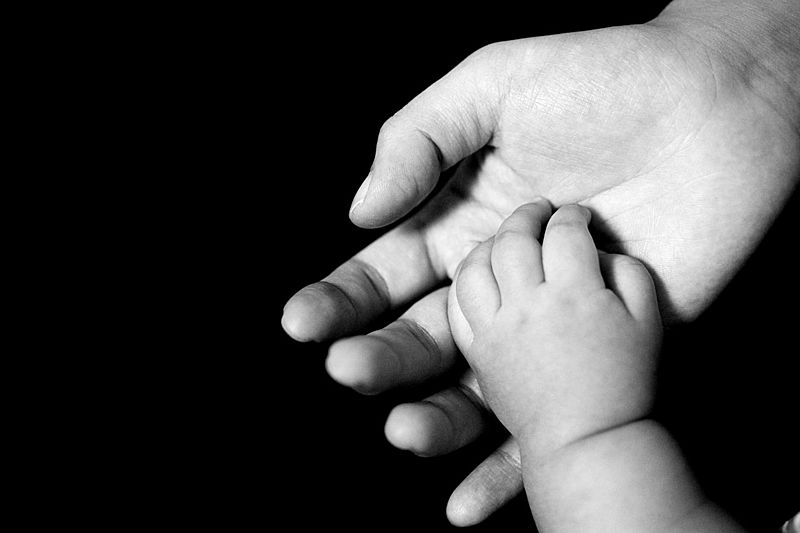
Sayyidatina Maryam a.s. guarded her purity and chastity solely for Allah s.w.t. She was not considered great just because she was the mother of a prophet. Rather, she was recognised as a woman who perfected her faith, demonstrated to us the real essence of tawakkul (whole reliance on Allah) and placed undivided trust in Allah s.w.t. in the most difficult times.
Sayyidatina Maryam a.s. was titled to be among the best women in both worlds; her story in the Quran is eternalised and would be read repeatedly as a virtuous example for many.
3. Asiyah Bint Muzahim
Asiyah, the brave and righteous wife of the evil Pharoah / Fir’aun, had advised her husband to adopt the infant Musa a.s. when she found him at River Nile.
Although Asiyah was not Prophet Musa a.s.' biological mother, her love for him was extraordinary. She had loved him since the first time she laid her eyes on him as a baby. She convinced Fir’aun not to kill Prophet Musa a.s. and insisted that Prophet Musa a.s. would be their beloved child who would later bring great benefit to them.
This was at a time when infanticide was the law of the land, where all newborn Jewish boys were executed and slaughtered because of the prediction that one of them would overthrow Fir’aun and destroy him. Asiyah not only nurtured Prophet Musa a.s. in the palace of Fir’aun, but was also one of the first to accept monotheism as preached by her adopted son, Prophet Musa a.s.
Fir’aun was the biggest tyrant of his time and a ruthless king. He was the leader of an exceptional civilisation and was surrounded by wealth and power. He proclaimed himself to be God and commanded his people to worship Him. Despite being Fir’aun’s wife, Asiyah had no commonalities with him. She was one of the loyal followers of Prophet Musa a.s. and firmly believed in his message despite knowing that whoever followed Prophet Musa a.s. would face punishment and severe torture.
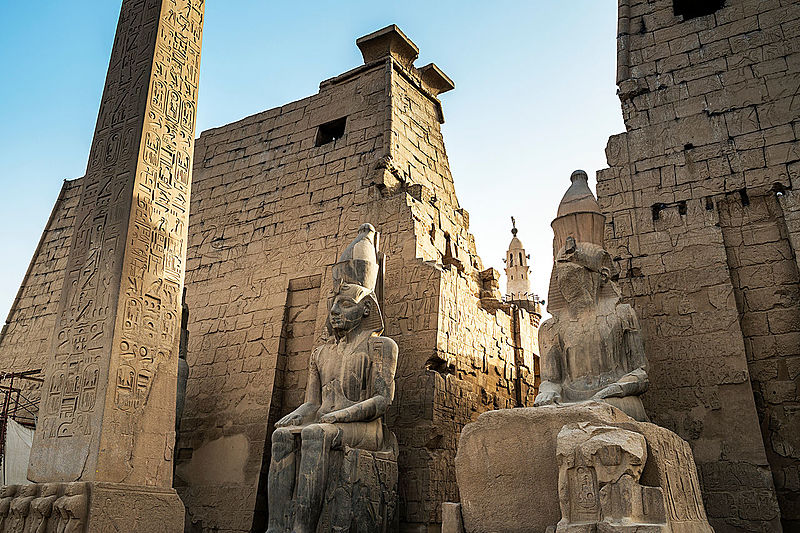
Despite being married to a tyrant who is acknowledged in the Quran, she was still a woman of complete conviction and unshaken faith, as the Prophet s.a.w. had described her.
Allah s.w.t. mentions in the Quran that He set the wife of Prophet Noah a.s. and Prophet Lot a.s. as examples for the disbelievers. Even though their respective husbands were prophets a.s, they betrayed them and rejected the truth.
ضَرَبَ ٱللَّهُ مَثَلًا لِّلَّذِينَ كَفَرُوا۟ ٱمْرَأَتَ نُوحٍ وَٱمْرَأَتَ لُوطٍ ۖ كَانَتَا تَحْتَ عَبْدَيْنِ مِنْ عِبَادِنَا صَـٰلِحَيْنِ فَخَانَتَاهُمَا فَلَمْ يُغْنِيَا عَنْهُمَا مِنَ ٱللَّهِ شَيْـئًا وَقِيلَ ٱدْخُلَا ٱلنَّارَ مَعَ ٱلدَّٰخِلِينَ
“Allah sets forth an example for the disbelievers: the wife of Noah and the wife of Lot. Each was married to one of Our righteous servants, yet betrayed them. So their husbands were of no benefit to them against Allah whatsoever. Both were told, 'Enter the Fire, along with the others!'”
(Surah At-Tahrim, 66:10)
On the other hand, Allah s.w.t. sets Asiyah; the wife of Fir’aun, and Maryam; the mother of Prophet Isa a.s, as examples for the believers. Allah praises them and speaks highly of them:
وَضَرَبَ ٱللَّهُ مَثَلًا لِّلَّذِينَ ءَامَنُوا۟ ٱمْرَأَتَ فِرْعَوْنَ إِذْ قَالَتْ رَبِّ ٱبْنِ لِى عِندَكَ بَيْتًۭا فِى ٱلْجَنَّةِ وَنَجِّنِى مِن فِرْعَوْنَ وَعَمَلِهِۦ وَنَجِّنِى مِنَ ٱلْقَوْمِ ٱلظَّـٰلِمِينَ. وَمَرْيَمَ ٱبْنَتَ عِمْرَٰنَ ٱلَّتِىٓ أَحْصَنَتْ فَرْجَهَا فَنَفَخْنَا فِيهِ مِن رُّوحِنَا وَصَدَّقَتْ بِكَلِمَـٰتِ رَبِّهَا وَكُتُبِهِۦ وَكَانَتْ مِنَ ٱلْقَـٰنِتِينَ
“And Allah sets forth an example for the believers: the wife of Pharaoh, who prayed, “My Lord! Build me a house in Paradise near You, deliver me from Pharaoh and his (evil) doing, and save me from the wrongdoing people.”
“(There is) also (the example of) Mary, the daughter of ’Imrân, who guarded her chastity, so We breathed into her through Our angel ˹Gabriel˺. She testified to the words of her Lord and His Scriptures, and was one of the (sincerely) devout.”
(Surah At-Tahrim, 66:11-12)
In these verses, Allah s.w.t. shows us that having faith is an individual struggle; Asiyah was living with a cruel oppressor, Fir’aun, but he did not in any way define Asiyah. Asiyah had all the reasons to hide her faith, but her love for Allah s.w.t. overcame her fear of being tortured, and she eventually professed her faith, which led her to her death.
Asiyah was tortured in the most brutal way, and time after time. Fir’aun would ask her if she had changed her mind, and every time she would affirm her faith in Allah s.w.t; the God of Prophet Musa a.s. and Prophet Harun a.s. Fir’aun was infuriated and betrayed and decided to end her life. Asiyah was not affected by the severity of the torments as she made a prayer that was preserved in the Quran.
As described in the Quranic verse above, she prayed, “My Lord! Build me a house in Paradise near You, deliver me from Pharaoh and his (evil) doing, and save me from the wrongdoing people”. She died while holding on to her strong faith, and she was guaranteed paradise.
Asiyah r.a. was a woman surrounded by power and wealth, but those worldly possessions did not blind her when her eyes were set upon the truth. She could do anything with a command, but she chose Allah s.w.t. over worldly benefits. Although she was married to the biggest tyrant, Allah s.w.t. set her as an example for the believers! She embodied kindness, strength and courage in the name of submitting to Allah s.w.t; qualities that named her a woman of paradise.
4. Sayyidatina Fatimah Bint Muhammad s.a.w.
“The mother of her father.”
The pure and modest, the obedient and humble. The fighter and the devotee. The pious and the God-Fearing. The first one to meet Prophet Muhammad s.a.w. after his passing and the leader of the believing women in Paradise.
Sayyidatina Fatimah r.a. was five years old when the first revelation descended upon Prophet Muhammad s.a.w. She grew up witnessing the hardship and torture experienced by the believers in the early years of the Prophethood. She was at a tender age when her mother, Sayyidatina Khadijah r.a, passed away. With the loss of her mother, the strong pillar of the family, she too lost her childhood. However, it did not make her frail or helpless. Instead, she was mentally and spiritually stronger than any children her age.
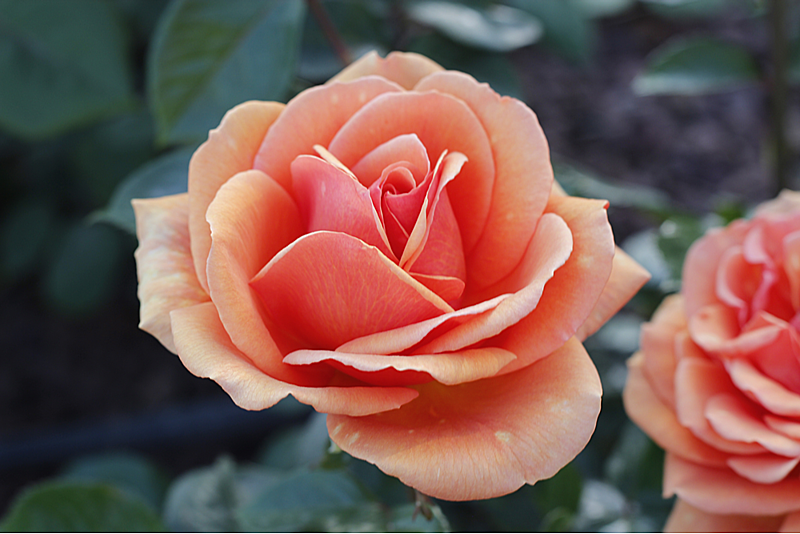
As a young girl, Sayyidatina Fatimah r.a. was already protective of Prophet Muhammad s.a.w. Her love for her father was so deep that she showed outstanding bravery to protect Prophet Muhammad s.a.w. Once, when Prophet s.a.w. was prostrating before Allah s.w.t, ‘Uqbah bin Abi Mu’eet; a prominent enemy of Prophet s.a.w, put offal and filthy blood-soaked intestines of a camel sacrificed in the name of one of the idols, on Prophet s.a.w’s back.
Upon seeing how cruelly Prophet Muhammad s.a.w. had been treated, Sayyidatina Fatima r.a. ran to him, removing the filth with her small hands, cleaning her father’s head and face, expressing her sadness with her tears, comforting him, and returning him to their home. With her extraordinary care for her father and facing adversities with him, she was called ‘the mother of her father’.
Sayyidatina Fatimah r.a. bore a striking resemblance to her father, Prophet Muhammad s.a.w. According to Sayyidatina A’ishah r.a, Sayyidatina Fatimah r.a. not only looked like Prophet s.a.w. but her manners such as speaking, sitting, standing and walking, and gestures were exactly like her father, Prophet Muhammad s.a.w. Whenever her father visited her, she would welcome him and kiss his forehead with love and respect. They were exceptionally close to each other, and whenever she visited her father, he would stand up and embrace her. It was as if she had left the sweet aura of her personality wherever she went.
If Prophet s.a.w. saw her troubled or sad, he would also be grieving. And if her father saw her happy, he would also be pleased. This is reflected when the Prophet s.a.w. said:
فَاطِمَةُ بَضْعَةٌ مِنِّي، فَمَنْ أَغْضَبَهَا أَغْضَبَنِي
“Fatimah is a part of me, and he who makes her angry makes me angry”
(Sahih Al-Bukhari)
Sayyidatina Fatimah r.a. led a humble life and was always in a state of gratitude towards Allah s.w.t. There are many narrations of the hard and difficult times which she had to face and endure. Once, she requested Prophet Muhammad s.a.w. to provide her with a helper as her daily chores became unbearable for her, and in return, Prophet Muhammad s.a.w. told her and her husband (Sayyiduna Ali r.a.) that he had a better gift than what she had asked for, saying:
أَلاَ أَدُلُّكُمَا عَلَى مَا هُوَ خَيْرٌ لَكُمَا مِنْ خَادِمٍ، إِذَا أَوَيْتُمَا إِلَى فِرَاشِكُمَا، أَوْ أَخَذْتُمَا مَضَاجِعَكُمَا، فَكَبِّرَا ثَلاَثًا وَثَلاَثِينَ، وَسَبِّحَا ثَلاَثًا وَثَلاَثِينَ، وَاحْمَدَا ثَلاَثًا وَثَلاَثِينَ، فَهَذَا خَيْرٌ لَكُمَا مِنْ خَادِمٍ
"Shall I not tell you of something better for both of you than a helper?" When you go to your beds, mention: (Allahu Akbar - God is Great) thirty-three times, (Subhan-Allah - Glory be to God) thirty-three times, and (AIhamdulillah - Praise be to God)" thirty-three times, and this is better for the both of you than a helper”
(Sahih Al-Bukhari)
She accepted this gift with open hands knowing that this gift would not only help her in this temporary world, but it would bring great benefit in the hereafter too.
She was the definition of modesty, humility, piousness and spirituality. Sayyidah Fatimah r.a, may Allah s.w.t be pleased with her, was given the title of 'az-Zahra' meaning "the Resplendent One". That was because of her beaming face, which seemed to radiate light. She was also called 'al-Batul' because of her asceticism. Instead of spending her time in the company of women, much of her time would be spent in prayers, reading the Quran and in other acts of 'ibadah.
Read more: Reflections on moving forward in life
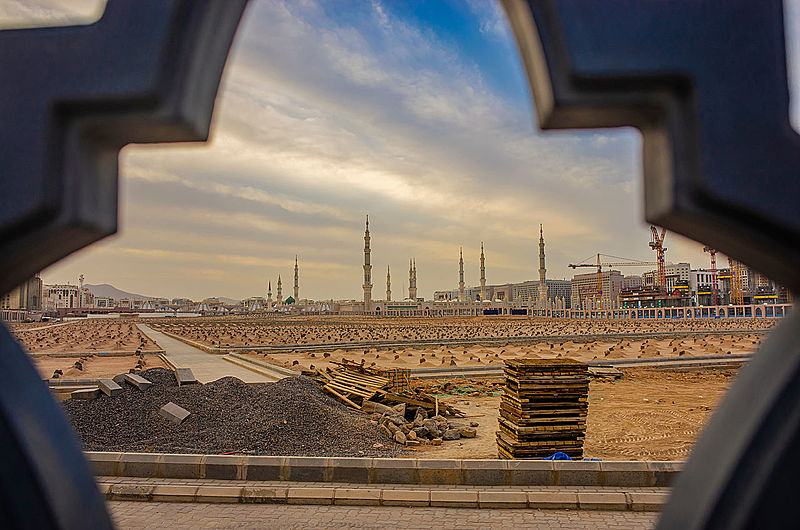
Sayyidatina Fatimah r.a. is a role model for all of us, she deserved to be followed by all believing women as she resembled Rasulullah s.a.w. in all aspects. She lived a virtuous and exemplary life that guaranteed her a high place in paradise. May we be among those who listen to their great stories and follow in their footsteps. Aameen.
From this short article, it is clear that women in Islam – like men – are the pillars of the community; they are respectable figures representing remarkable bravery, admirable modesty and righteousness. Their sacrifices are great and their love for Allah s.w.t. is so special that Allah s.w.t. preserved Asiyah’s prayer in the Quran, Allah s.w.t. gave salam to Sayyidatina Khadijah r.a through the angel Jibril a.s, Allah s.w.t showed his miracle through Maryam a.s. when she carried Prophet Isa a.s. in her womb without any men touching her, and Allah placed a special holistic resemblance of his beloved Rasulullah s.a.w. in Sayyidatina Fatimah r.a.
May Allah s.w.t. honour us by making us great followers of his beloved servants. Ameen.
References:
1- The Honorable Wives of the Prophet Peace Be Upon Him, compiled by Darussalam and edited by Abdul Ahad (Alig.). Darussalam, 2004
2- Mahmood Ahmad Ghadanfar. Great Women of Islam Who Were Given The Good News of Paradise (Rev. by Sheikh Safiur-Rahman Al-Maubarakpuri). Darussalam, 2009
3- Ibn Kathir. Kisah Para Nabi (Trans. By M. Abdul Ghoffar E.M.). Pustaka Azzam, 2001

